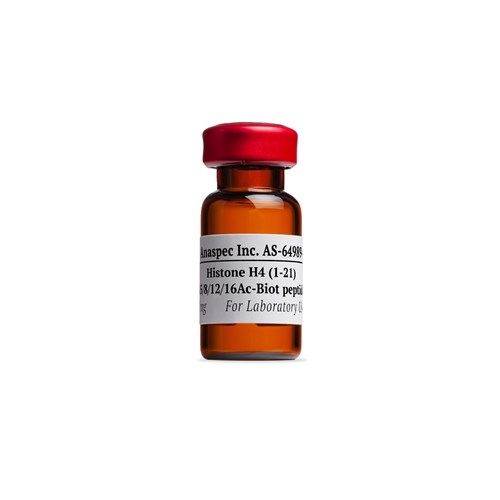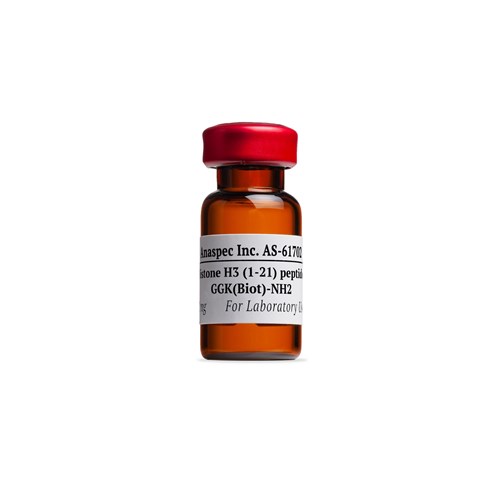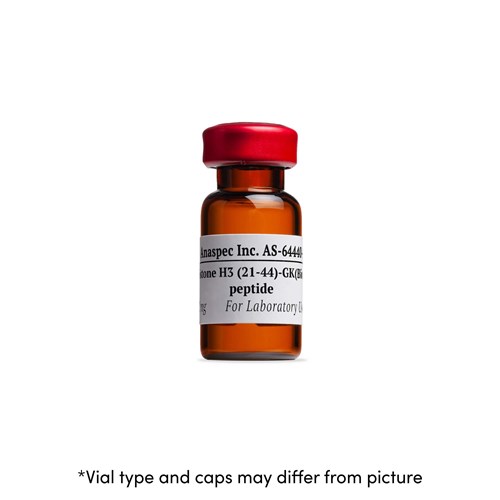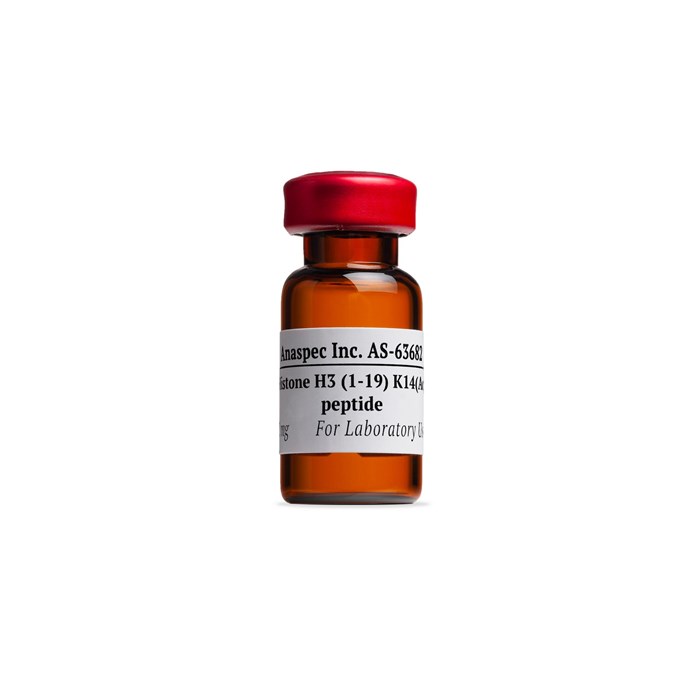Peptides
[Lys(Ac)14]-Histone H3 (1-19) - 1 mg
€244.00
Check your price
- Cat.Number : AS-63682
- Manufacturer Ref. :
-
Availability :
In stock
Alternative choices
This peptide is Histone H3 acetylated at lysine 14. Histone lysine aetylation is known to play an important role in chromatin-directed gene transcription. A bromodomain 2 of polybromo (a chromatin remodelling protein) preferentially recognizes acetylated lysine of H3.
Specifications
| Chemistry | |
| Sequence one letter code |
|
|---|---|
| Sequence three letter code |
|
| Molecular Formula |
|
| Molecular Mass/ Weight |
|
| Modification | |
| Conjugation |
|
| Quantity & Purity | |
| Purity |
|
| Storage & stability | |
| Form |
|
| Storage Conditions |
|
| Activity | |
| Biomarker Target | |
| Research Area | |
| Sub-category Research Area | |
| Usage |
|
| Source | |
| Source / Species |
|
| Codes | |
| Code Nacres |
|
You may also be interested in the following product(s)



Citations
Selective recognition of H3.1K36 dimethylation/H4K16 acetylation facilitates the regulation of all-trans-retinoic acid (ATRA)-responsive genes by putative chromatin reader ZMYND8
J. Biol. Chem. . 2015 Dec 11 ; 291(6) 2664 | DOI : 10.1074/jbc.M115.679985
- S. Adhikary
- et al
